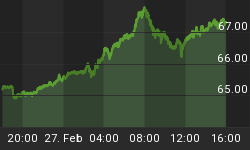With investors' risk appetite emboldened by the prospects of an economic recovery, emerging-market equities (+104.0%) have outperformed mature-market equities (+73.3%) by a considerable margin since the commencement of the cyclical bull market in early March 2009. But these numbers camouflage the fact that the past six months have been characterized by essentially a sideways movement in relative performance. This raises the question as to how investors should place their bets over the next few months.
Emerging-market equity prices as measured by the MSCI Emerging Markets Free Index are primarily driven by commodity prices and in particular by metal prices, as seen from the comparison of the MSCI Emerging Markets Free Index with the Economist Metals Price Index in the graph below. In short, emerging-market stocks are currently fairly priced given the level of metal prices.

Source: Plexus Asset Management (based on data from I-Net Bridge).
However, the outlook for emerging-market equities is less positive given the cloudy outlook for metal prices owing to China's credit tightening, and high stock levels of some metals at the London Metal Exchange (LME). Improved global industrial production and stronger economic growth in especially developed economies are likely to underscore metal prices and therefore emerging-market equities, though.
The relative performance of emerging markets versus mature markets, as measured by the ratio of the MSCI Emerging Market Free Index and MSCI Global Index, is also driven by commodity prices and specifically metal prices. The relative risk of investing in emerging-market equities has increased as the ratio has surged ahead of metal prices. At best, the MSCI Emerging Market Index could maintain the current relative levels against the MSCI Global Index should metal prices move sideways. But metal prices heading lower could lead to significant underperformance by emerging markets compared to mature markets.

Source: Plexus Asset Management (based on data from I-Net Bridge).
As shown, metal prices need to rise substantially to ensure further outperformance by the MSCI Emerging Markets Free Index.

Source: Plexus Asset Management (based on data from I-Net Bridge).
With the commodities benchmark Thomson Reuters/Jefferies CRB Index again having fallen to below its 50-day moving average, it looks as if traders' short-term appetite for commodities is waning. Based on the analysis above, the same could hold true for emerging-market equities, especially with the Shanghai Composite Index - the big gorilla in the group - battling to climb back to above its 50-day line and now also trading 13 points below the key 200-day average.
Did you enjoy this post? If so, click here to subscribe to updates to Investment Postcards from Cape Town by e-mail.















